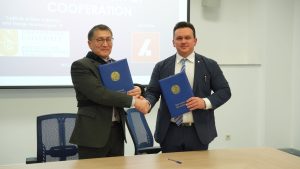Denis de Crombrugghe, NU Graduate School of Business (GSB) professor, together with his colleagues from the Maastricht Graduate School of Governance, have published his research on economic slumps as sequences of structural breaks in the World Bank Economic Review.
The researchers have studied the scientific literature on economic growth and recession and found out that more attention was paid to the beginning of growth onset and growth acceleration, rather than to the onset of declines or the duration of contractions.
Scientists assembled macroeconomic data for 145 countries spanning the period between 1950 and 2014, and identified between 57 and 77 economic slumps satisfying research criteria and recognizable in contemporary history. The findings defined the connection between the economic slump and a number of other factors: economic policy, strengthening of institutions, and demographic structures. According to economic theory, “institutions” are understood as a set of rules reflected in formal norms and informal restrictions, structuring human interactions.
It turned out that strong institutions can contribute to the shortening of the duration of crises, while ethnic cleavages do the opposite. However, according to the GSB professor, the negative effects of ethnic cleavages are not insurmountable: an interaction effect suggests they can be offset by appropriate institutions.
Based on the results of the study, scientists formulated what they call “stylized” facts:
1) weak political institutions predate crises, whereas political reforms tend to follow them, suggesting that abrupt negative growth creates room for political overhaul (in other words, “one should never waste a good crisis”);
2) the length and depth of economic declines are robustly correlated with constraints on the executive and ethnic heterogeneity (measured by ethnolinguistic fractionalization); and
3) there is a robust interaction between those two variables, suggesting that institutions constraining leaders are especially important for stabilizing growth in ethnically and culturally diverse societies.
Scientists argue a few country cases and point out that their “stylized facts” are particularly relevant for Sub-Saharan Africa, where politics are often ethnic-based and decision-makers are comparatively unconstrained.
“It was a fascinating piece of research to work on. In a few years, when we will have some statistical perspective on the effects of the current devastating pandemic. It will be interesting to see whether the pace at which countries recover from it, will corroborate the “stylized facts” that we put forward to the world in 2020,” said Denis de Crombrugghe, Associate Professor at GSB.
Read the full paper here









